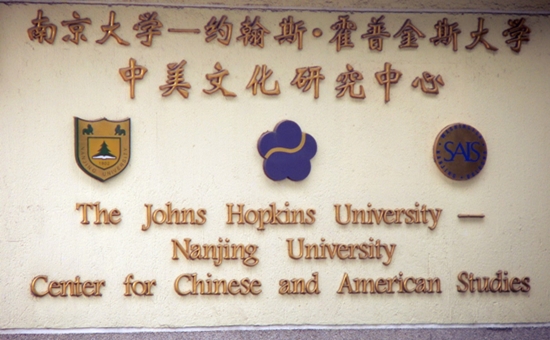
You can promote the loftiest credo for your new university department, but you can’t take the professors out of the picture. And professors rarely do lofty.
Nonpartisan?
On June 16, 2021, Johns Hopkins University launched its China Research Center within the School of Advanced International Studies (SAIS). The Center issued their credo, a “Statement of Academic Integrity and Independence. The SAIS China Global Research Center is fully committed to preserving the highest standards of academic freedom and scholarly independence in all its activities. The center makes independent decisions on every aspect of its programs, and places intellectual integrity and nonpartisanship at the core of its research, publications, and policy projects.”
Johns Hopkins appointed Andrew Mertha, who is also the school’s George and Sadie Hyman Professor of China Studies, to direct the Center, and he has displayed his bedrock nonpartisanship in a March 2024 interview for U.S.–China Perception Monitor.
There he opined that former President Trump’s “taking a sledgehammer to the delicate and intricate US-China trade policy has had a hugely negative effect economically and politically on the overall bilateral relationship. And Trump’s anti-Asian racism during the COVID-19 crisis didn’t help. And I’m not showing my political stripes here, but given Donald Trump’s recent comments about NATO, as well as the ongoing criticism of U.S. policy supporting Ukraine, if I were Taiwanese, I would be very worried indeed.”
JHU President Ron Daniels apparently did not read the Statement of Academic Integrity and Independence, because he clarified the school’s purpose by saying how excited the school is “to strengthen Johns Hopkins SAIS’ leadership in bridging research and policy that makes an impact at a historic moment in U.S.–China relations and global geopolitics.”
K-flavored
“Bridging research and policy” to make an “impact”—that’s think-tank talk with a K Street flavor. You write the paper, you lobby the government, you impact foreign policy. Have we reduced a university department to the level of a lobbying firm, a think tank, or a partisan-funded “policy institute”? A JHU page about the SAIS China Research Center notes that its purpose is to champion both “rigorous scholarly research” and “active engagement with the key academics, policy practitioners, government officials, and business and community leaders.”
It sounds like this “research center” is dedicated to flogging policy through “active engagement.”
When the university welcomed two new faculty members, Jessica Chen Weiss and Jeremy Wallace, it spoke of how they would be joining “a new SAIS institute designed to foster deeper understanding and informed policymaking on the evolving role of China in the world.”
Here we go again—policymaking.
In fact, Ms. Weiss is a fireball of China advocacy, appearing on NPR and in the pages of The New Yorker and Foreign Policy and giving public speeches in favor of (guess) a softened U.S. China policy. Google her to find many such stories. She is a kind of pop-culture China scholar celebrity.
The New Yorker says that Weiss “has emerged as a kind of loyal and measured opposition to a rare case of bipartisan consensus in Washington—that China must be countered at all costs.”
Just a decade ago, this view was limited to a small number of right-wing commentators and analysts, but, in one of the most dramatic about-faces in U.S. foreign policy, it is now the dominant way of seeing China. As Weiss noted in her Foreign Affairs article, “ever more vehement opposition to China may be the sole thing that Democrats and Republicans can agree on.”…
Specifically, Weiss thinks that the Administration should take steps to de-escalate the tensions. It should oppose efforts under way in Congress to raise Taiwan’s diplomatic status, and discourage visits to Taiwan by senior officials, such as the recent trip by the outgoing Speaker of the House, Nancy Pelosi. More broadly, the United States should be willing to offer rewards for better Chinese behavior, rather than solely a series of punishments, and set up more regular contact between Washington and Beijing.
She wants a redo in U.S.-China relations. The Center cites “intellectual integrity and nonpartisanship at the core of its research, publications, and policy projects.” This is not what we see. We see policy first and foremost.
The Nanjing factor
By the way, what kind of nonpartisanship could ever be expected from a school that has a Nanjing campus, whose faculty members “have been at the forefront of Sino-global relations for more than 30 years”? Would the parent institution ever be willing to endanger its satellite campus with the “wrong” kind of research, publications, and policy projects?
Looking at the earliest endowment of JHU’s China studies, we see that the apples do not fall far from the tree.
In 1979, Johns Hopkins established the George and Sadie Hyman Chair in Chinese Studies. Sadie Hyman, who survived George, “was an early advocate of United States recognition of China and an early supporter of the Asian Studies Program at SAIS. She remained that department’s key benefactor until her death in 1978.” Advocating recognition of Red China in early days was not nonpartisan. And those were early days.
JHU’s China Studies Program “was founded in 1982 by Doak Barnett, who was named the George and Sadie Hyman Professor of Chinese Studies that same year.” Mr. Barnett had advocated diplomatic relations with Red China in the 1950s. Unless his views changed, advocacy was seeded in this institution from the beginning.
Of course, donors have interests. That’s natural. So let’s be realistic and call advocacy what it is and has been from the beginning. The China Research Center looks like a Center for Vigorous China Policy Promotion, funded by donors and student tuition. The policies promoted are not likely to be products of “intellectual integrity and nonpartisanship.” □
James Roth works for a major defense contractor in Virginia.
Also see:
StopTheChinazis.org: “China’s Donations to Your Alma Mater”





